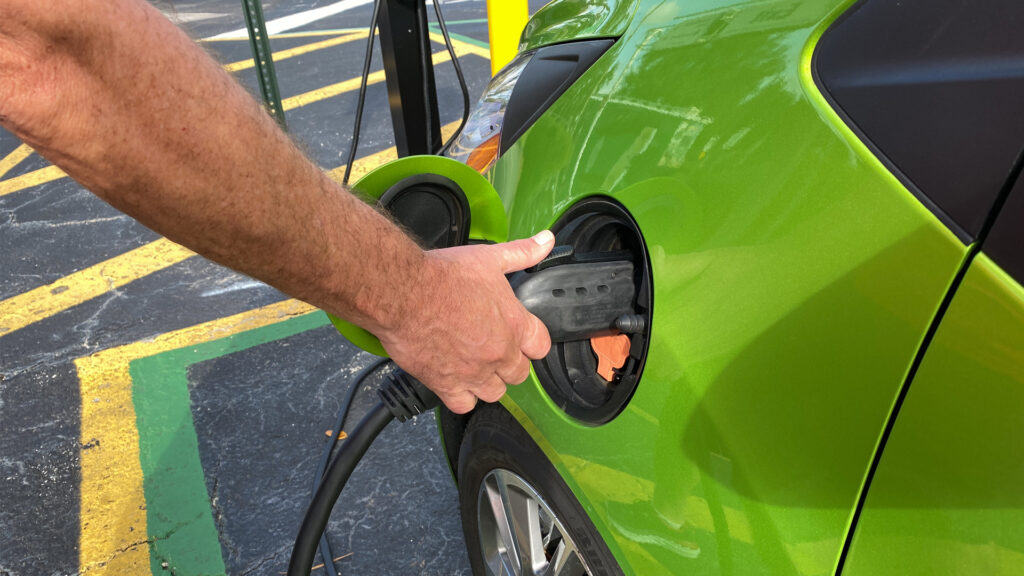By Chelsea Rivera, Florida Climate Equity Cohort
The 2024 legislative session is officially underway, and as Gov. Ron DeSantis urges legislators to “stay the course” and “fight the woke mob,” elected officials are finding more and more ways to limit local governments’ rights to create local, place-based solutions to their citizens’ needs.

Preemption is a tool that the Florida Legislature has used with exuberance in recent years to expand the power of the state government while placing a chokehold on lower levels of government. This year’s proposed bills include numerous problematic preemption bills, including, but unfortunately not limited to, the following atrocious bills: HB 433, which preempts heat protections; SB 1084/HB 1701, which preempts regulation of EV charging stations by local municipalities; and HB 1301, which preempts metropolitan planning organizations.
You’ll likely continue to hear more preemption bills being introduced, so it’s important to get clear about preemption and understand its role in the legislative process.
What is preemption?
Preemption is legal doctrine that allows a higher branch of government to limit or eliminate the power of a lower level of government on a specific issue. Preemption is neither bad nor good; it’s the way that a government uses it that affects positive or negative results.
For example, in 2023, the Florida state government used HB 1417 to remove the power of many local municipalities to enact a tenants’ bill of rights, effectively exercising its power of preemption as a higher branch of government. In the Constitution, cities are considered “creatures of the state,” which is interpreted to mean that state laws take precedence over local laws.
The Respect for Marriage Act, signed in 2022 by President Joe Biden, guaranteed marriage equality for same-sex and interracial couples under federal law. This law preempts states from passing legislation that would deny this right to its citizens because federal law is a higher branch of law than state law.
Preemption in Florida
Preemption has been used extensively in Florida under the DeSantis administration as a way to limit local government and expand the power and oversight of the state government. While preemption itself is neutral, DeSantis has weaponized it as a way to prevent local cities from enacting place-based solutions, stripping the power from local elected officials and placing it in the hands of the Republican supermajority’s state powers.
Local governments can be more responsive to the specific needs of their citizens, but when state law preempts local governments, this can stifle grassroots movements and discourage municipalities from piloting innovative solutions. With a state as large and diverse as Florida, it’s important the local governments have the power to create policies and programs that respond to their unique demographics.
One of the beauties of local government is that it has a more intimate and deep understanding of its citizens’ needs than the state government does; thus local governments can respond to the specific needs of its people. Local governments have been able to develop policies that are unconventional and at times revolutionary, and these policies, when proven successful, can have the power to influence higher powers of government.

For example, in South Florida, We Count! spearheaded a worker-led campaign to fight for heat protections for outdoor workers in Miami-Dade which culminated with the introduction of a Heat Standard for Outdoor Workers legislation. This piece of legislation, which will be voted on in March, is the first legislation of its kind in Florida and exemplifies the sort of unconventional and revolutionary policy that’s possible when local municipalities are able to create place-based solutions. However, HB 433, if passed, would prevent local governments from passing any workplace heat exposure requirements and void any heat-related ordinances that were previously approved.
Another way that local municipalities are responding to the specific environmental and sustainability needs of their towns is by incorporating electric vehicle policies into their land use codes. In Orlando, 20% of parking spaces in new multi-family and hotel developments must be EV capable, and 2% of parking spaces must have electric vehicle supply equipment installed. But, if SB 1084/HB 1701 is passed, it would prevent any local government from enacting or enforcing any ordinance related to electric vehicle charging stations.
Unfortunately, the DeSantis administration has been using preemption as a way to stifle innovation, which DeSantis conflates with “woke ideology” and is attempting to use a one-size-fits-all approach to policymaking in Florida. As we continue into legislative session this year, we urge you to be especially watchful for preemption bills and their implications for strangling the powers of local governments.
This piece was written by Dr. Chelsea Rivera in collaboration with the Florida Climate Equity Cohort, a group of 10 organizations across Florida working at the intersection of climate change and social, economic and racial justice.
If you are interested in submitting an opinion piece to The Invading Sea, email Editor Nathan Crabbe at ncrabbe@fau.edu. Sign up for The Invading Sea newsletter by visiting here.



